1. Which were your impressions from the first Greek theatrical adaptation of “The Man From Earth”?
I loved it! I loved it so much I felt giddy throughout the play. I thought the cast was superb, the staging was innovative, and the overall effect very powerful. I enjoyed how many laughs they got out of the audience, and yet during the play’s most emotional moments, I could feel that the audience was utterly involved. I was very, very happy and I think it’s a wonderful production.
2. The plot of the play is quite original. Could you tell us what inspired you more about it?
Well, don’t forget that I didn’t write the original screenplay upon which the material is based. That was written by Jerome Bixby, a deeply talented American science-fiction writer. In the 1940’s and ‘50’s he wrote many short stories, one of which became the classic “Twilight Zone” episode, “It’s a Good Life”. He went on to write the incredible sci-fi classic, “Fantastic Voyage,” as well as four original “Star Trek” episodes. These included the classic “Mirror, Mirror” as well as “Requiem for Methuselah,” in which he explored some of the same ideas that are at the center of “The Man From Earth.”
He then put the idea aside for many years, and ultimately wrote the original screenplay for “The Man from Earth” in the final months of his life. By the time I first saw it, he had been dead for almost a year. But I loved the script and I worked with his son Emerson to bring it to the screen. The script needed some refining and, as Jerome was no longer with us, I did that work myself. The film was released in 2007.
It became a sort of cult-phenomenon, and I began to receive requests from all over the world from people who wanted to produce it locally as a play. So I wrote a theatrical adaptation, and then made arrangements with the Samuel French Company to distribute the printed play and administer those rights.
3. In the past years there has been much talk about art not being original. There is no virgin birth in nature too. On whose shoulders do you think (if you do), that you are standing?
I’m standing on so many shoulders there’s a virtual human pyramid beneath me! First of all, with regards specifically to “The Man From Earth”, I’m well atop Jerome Bixby’s shoulders, as well as those of his son Emerson, who assisted his father in those final days, taking dictation, typing up notes, and so on.
As a filmmaker, I’m a product of all the influences I’ve had in my life thanks to the work of other writers and directors throughout the history of cinema. While I’d like to think that I don’t copy any particular person’s style or sensibility, I know that my personal vision reflects everything I’ve seen throughout my life, whether specifically movies, or even art, music, photography, architecture, books or current events, and thus I owe an incalculable debt to everyone, really, who’s come before me.
4. Is it easy to adapt a movie film for the stage?
In this particular case it was fairly easy, because the action in the movie script was so contained, with basically one location: a cabin in the middle of nowhere. There are scenes both inside and outside the cabin, and this is where the hand of the director (and the set designer) can perhaps be most clearly seen in any given production of this play… how do you stage those scenes? How do you handle the transitions? Do you actually put a truck onstage, or do you only indicate that John is still packing boxes into his truck? Can you have a fire going inside the cabin, or do you have to handle that aspect a different way?
The other reason that a movie script – especially this one – can be readily adaptable to the stage is because like a play, it’s mostly dialogue. When you look at a movie script, there is usually not a lot of “stage direction”. Mostly it’s all dialogue, just like a play. Of course, if the action being described is giant robots attacking a city, it’s going to be a lot harder to adapt it for the stage than, let’s say, a movie in which people are standing around in rooms talking.
5. This work being your most celebrated so far, what would your next step like to be?
My goal has always been the same: to have a solid, dependable career making movies. The idea that I could make a full-time living writing and/or directing motion pictures has always been my dream. Over the years, there have been times when that’s been utterly fulfilled, and other times when it wasn’t so clear that it was going to work out. But right now, knock wood, I seem to be going from project to project making one or two movies a year, and that’s really fantastic. Next step? Honestly, more of the same. Maybe, if I could make one wish… I’d like to see the budgets (and the shooting schedules) get a little bigger. But as long as I get to keep making movies, I’ll be happy.
6. Which do you find preferable, directing comedies or dramas?
When it comes to directing, I don’t really have a preference. A comedy isn’t necessarily more fun to direct than a drama because the fun doesn’t come from what you’re specifically shooting, but from the shoot itself.
However when it comes to writing, I definitely prefer working on comedies. The only problem is that lately I’ve had a hard time finding the funding for comedies, and that’s why I’ve been making thrillers and other types of “genre” pictures. For example, it looks like my next movie will be a Western.
Having said that, I’ve always, always wanted to be the kind of director (like Norman Jewison, Sidney Lumet, Robert Wise or Steven Spielberg) who can move from genre to genre and still be an effective filmmaker. Naturally I admire directors like Alfred Hitchcock, Quentin Tarantino or Wes Anderson, who have specific, distinctive personal styles, but that’s not how I see myself. I tend to bend my personal style – if I have one – to the needs of the material, rather than finding (or developing) material which suits my style.
And I’ve always wanted to make a Western!
7. Which role do you find preferable, directing, producing or writing a story?
When it comes to producing, the fact is that I’ve only produced because it was required to get the movies made. I would love to someday hook up with a skilled and powerful producer who can take care of everything else and just leave me to direct, but so far that has not been my experience. So, I usually (well, always) have a producer role, whether I’m getting the on-screen credit for it or not.
Between writing and directing… honestly I’ve always seen then as one thing. When I’m writing, I see the movie in my head, and when I’m directing I always have to think as a writer, and ask questions: Does this move the story forward in the best way? Is this the best way to say this? Does this even have to be said, or can it be shown instead? Is this funny/scary/exciting enough, or should we change it?
And then you ask all those questions, and make all those decisions all over again when you’re editing the movie. In fact, someone said once that you write every movie three times: when you first pen the script, when you shoot the movie, and when you edit it.
8. During your visit to Greece what will be your most pleasant memory or experience?
This trip has been wonderful so far, and I still have another day and night ahead of me! It has been enormously rewarding on both a personal and professional level. Firstly, regarding the play (which was the reason for the visit): I thought it was wonderful, and I came away deeply impressed with everyone’s work, and deeply inspired by the experience.
Personally, I have wanted to visit Greece my entire life. Over the years I’ve read a fair amount of Greek mythology, and to come visit Athens, to see ancient carvings of the gods, heroes and monsters… it’s a dream come true.
And finally, I’ve met some wonderful people here; people with whom I hope to stay friends with forever. So it’s a short trip, but very powerful, and full of pleasant memories and memorable experiences.
9. Would you care to comment on the recent events in Greece, the murders and the financial – social unrest? What would a perennial Cro Magnon advise his grand children?
I’m afraid I can’t speak for John Oldman except as a man who has been inspired by his wisdom, and his ability to see the long view. I also don’t know enough about the Greek economic crisis to intelligently comment in detail. But I will say that in any situation – especially a crisis – it’s important to stay calm and look at all sides of the problem, and see what might be our responsibility before we get ready to point fingers and assign blame. When people are blamed or criticized, they tend to pull back and assume a defensive position, thus they’re not in a mood to compromise or admit having made any mistakes.
But if everybody admits to bearing some responsibility and makes it clear that they don’t expect to get everything they want – if everybody is willing to give up some of what they want in exchange for getting the most important thing(s) they need, then compromise can truly be reached. Adhering to strict ideology and blaming the other guy is never going to get you the results you want. And in a democracy, we have to remember that we voted the government into power in the first place, and that if we stay mobilized and active, we can change the government.
Finally, I think it’s important to forgive, ourselves and other people. We all make mistakes, and forgiveness is crucial.
10. From the place where you stand, which recent global event impressed you the most and why? Has the crisis affected you?
I believe that with rare exceptions, most people want peace. I’ve been impressed with the dialogue coming out of Iran lately; I hope it’s sincere, and they really want to re-join the civilized world and have peace. I also think that there are more and more – and louder and louder – voices in the middle east pushing for a real two-state solution to the Israeli/Palestinian conflict. With some of the old-line people dying off, a younger generation, who doesn’t share the hate and wants to co-exist, can come to power and influence.
I also think that people are getting smarter about the environment. I just read this morning that shark fin soup is consumption is down 70 % in China, and that’s wonderful. People are learning that certain things are the product of superstition and only result in the extinction of rare and beautiful – and important – animals. However, there were still millions of sharks killed last year just for their fin, so there’s a lot of work still to be done.
The economic crisis has certainly affected me. For example, if people don’t have any money and are forced to steal movies by downloading them instead of purchasing them legally, then the distributors won’t have any money to fund original productions. If there is less money available to make and buy movies, then it’s that much harder for me to get a project off the ground.
11. Which project of yours do you feel most passionate about?
I’m not sure if you mean projects I’ve made, or projects I hope to make in the future. In the former category, I suppose my favorite movie of mine is still “Went to Coney Island on a Mission from God… Be Back by Five” because not only am I still passionate about the themes and ideas in that movie, but the movie itself turned out very well; just like I pictured it would, really. Plus the shoot was enormously entertaining, and it led to some great times and great relationships.
In terms of upcoming projects, I have several I want to get off the ground. There is a very funny heist comedy I want to make, as well as great satire about love and divorce. There’s another Western I want to film, and I still hope to make the movie of a much-loved musical from the 70’s. I’m passionate about all these shows!
Greek night with the greek actors
Dimitis Alexandris, the greek Man from earth
Richard Schenkman and Constantine Nicolaides, the director of the play.
The man from earth.
Starring: Dimitris Alexandris, Niki Pallikaraki, Christodoulos Stylianou, Errikos Litsis, Nikos Poriotis, George Katinas, Konstantina Maltese, Magdalene Palioura.
Translate from the script: Constantine Nicolaides, George Katinas
Director: Constantine Nicolaides
Sets – Costumes – Lights: Life Lead Famelis
Movement: Christina Fotinaki
Music: Lina Zina
Photos: Panagiotis Zeppos
Makeup: Gina Kyriazis
Poster: Aris Sompotis,
Video art:̱ Christos Pytharas
Theatre ALKMINI, Alcmene 8, Gazi, Athens, Greece
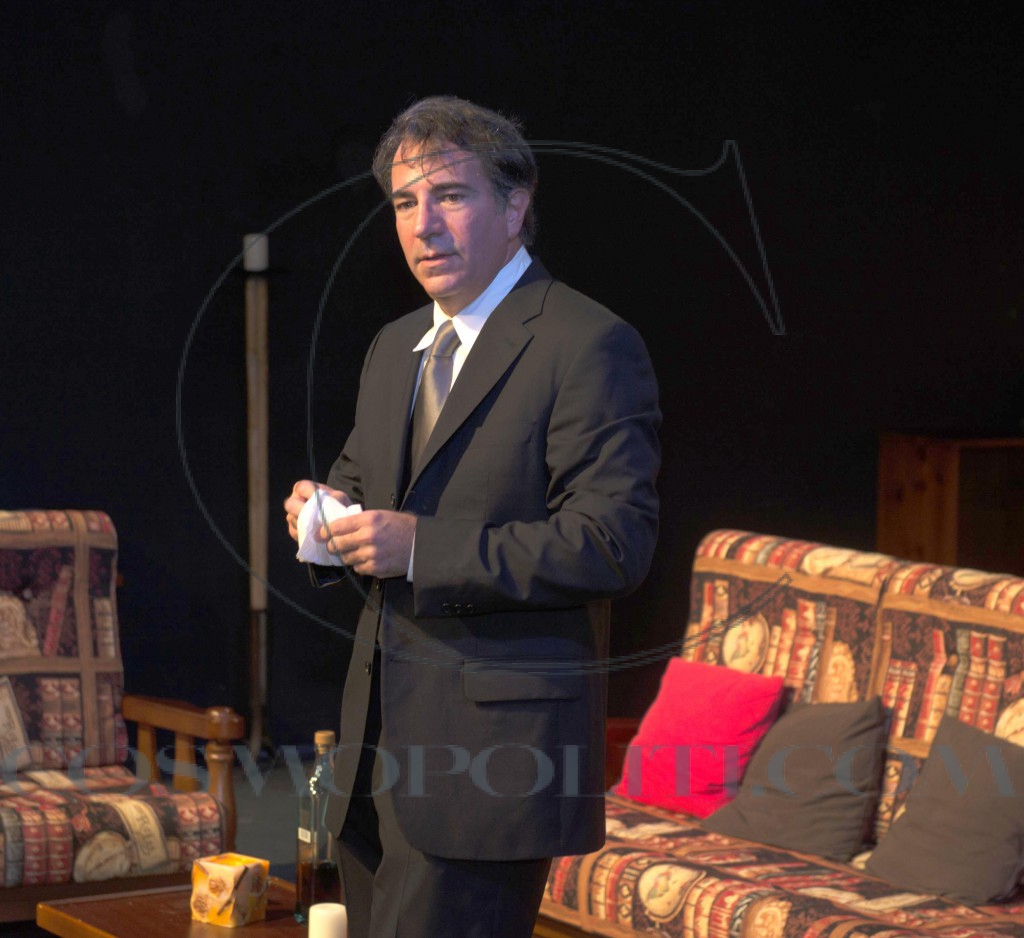
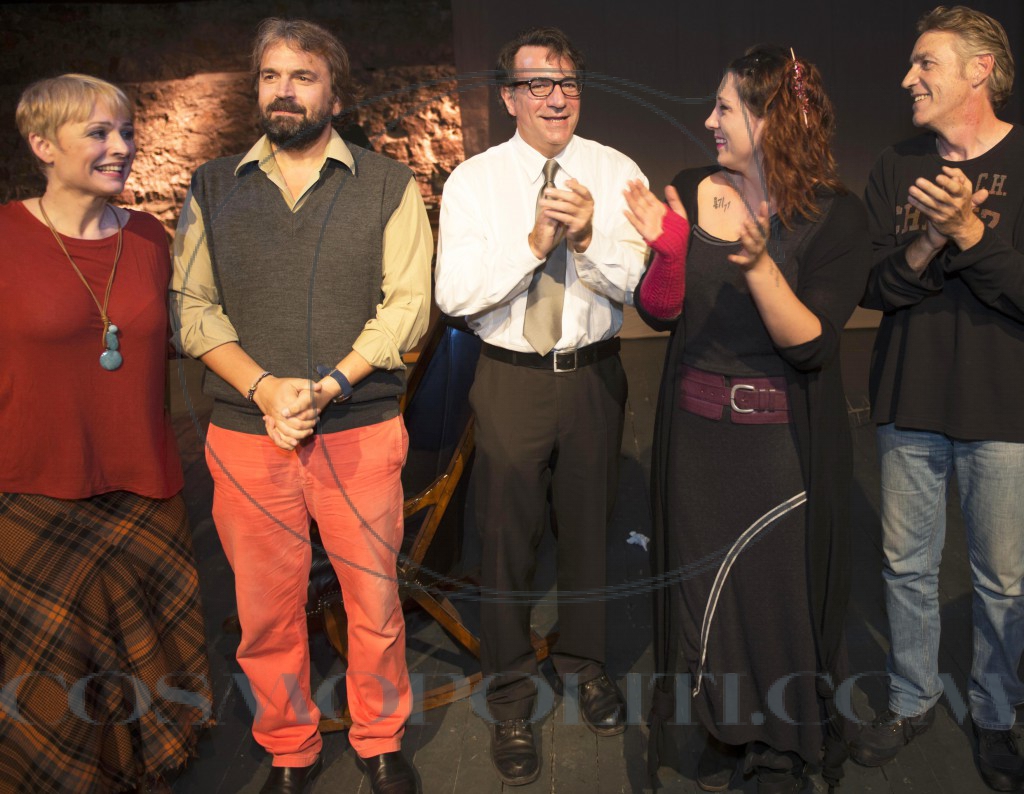
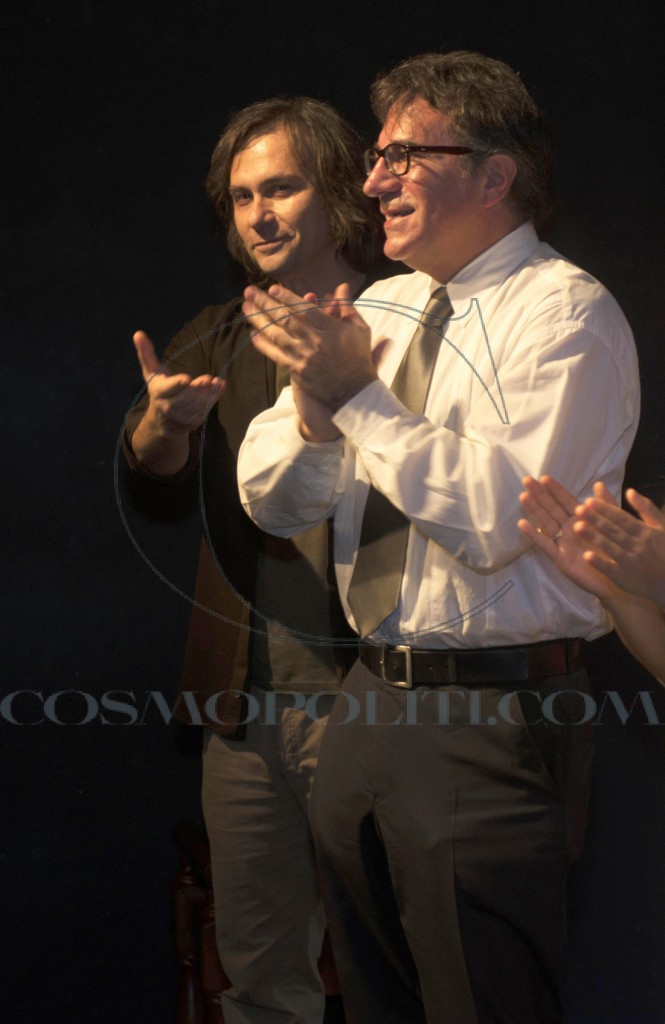
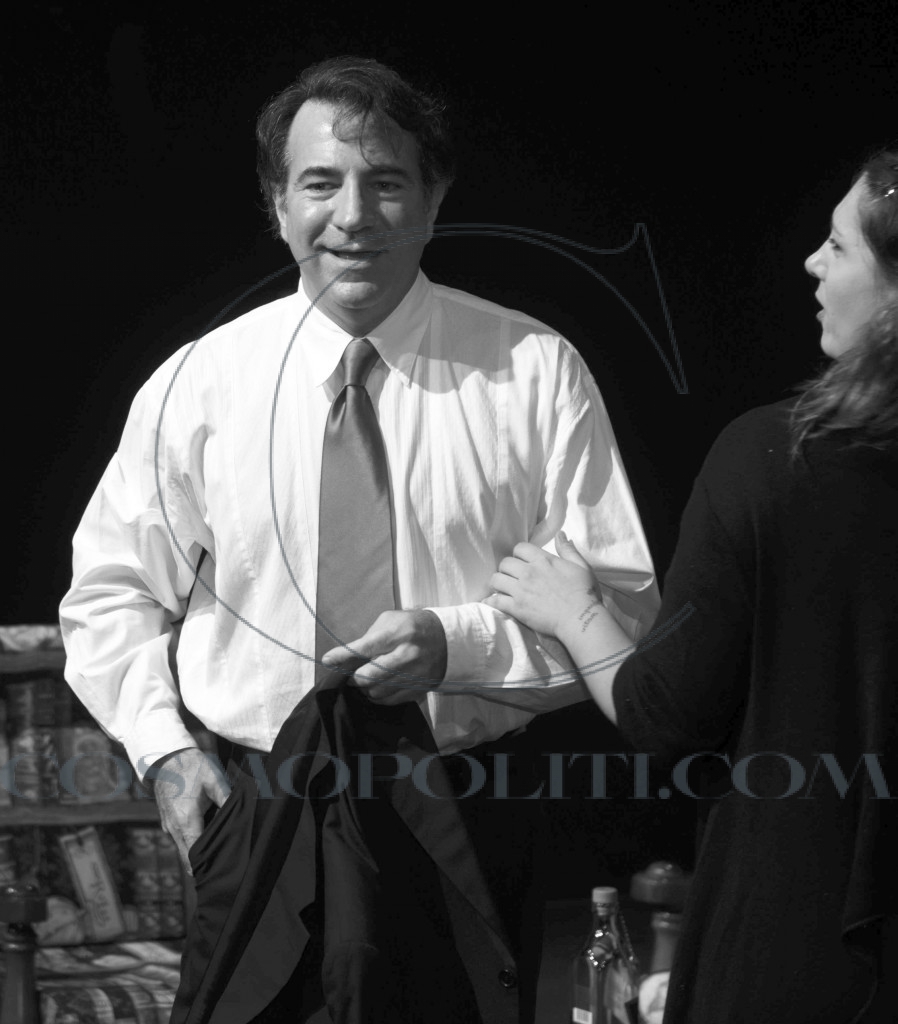
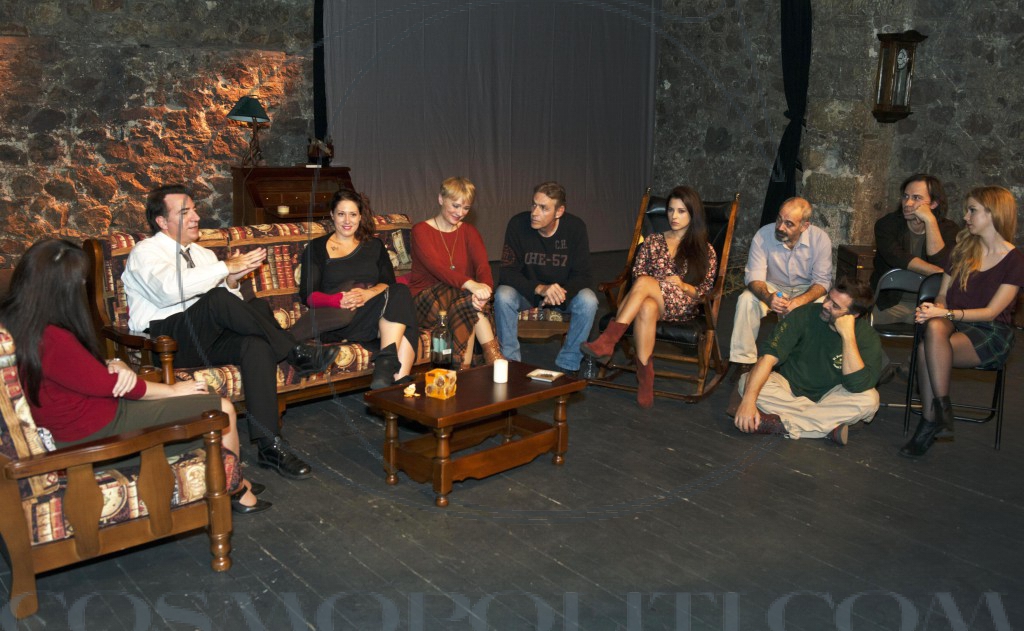
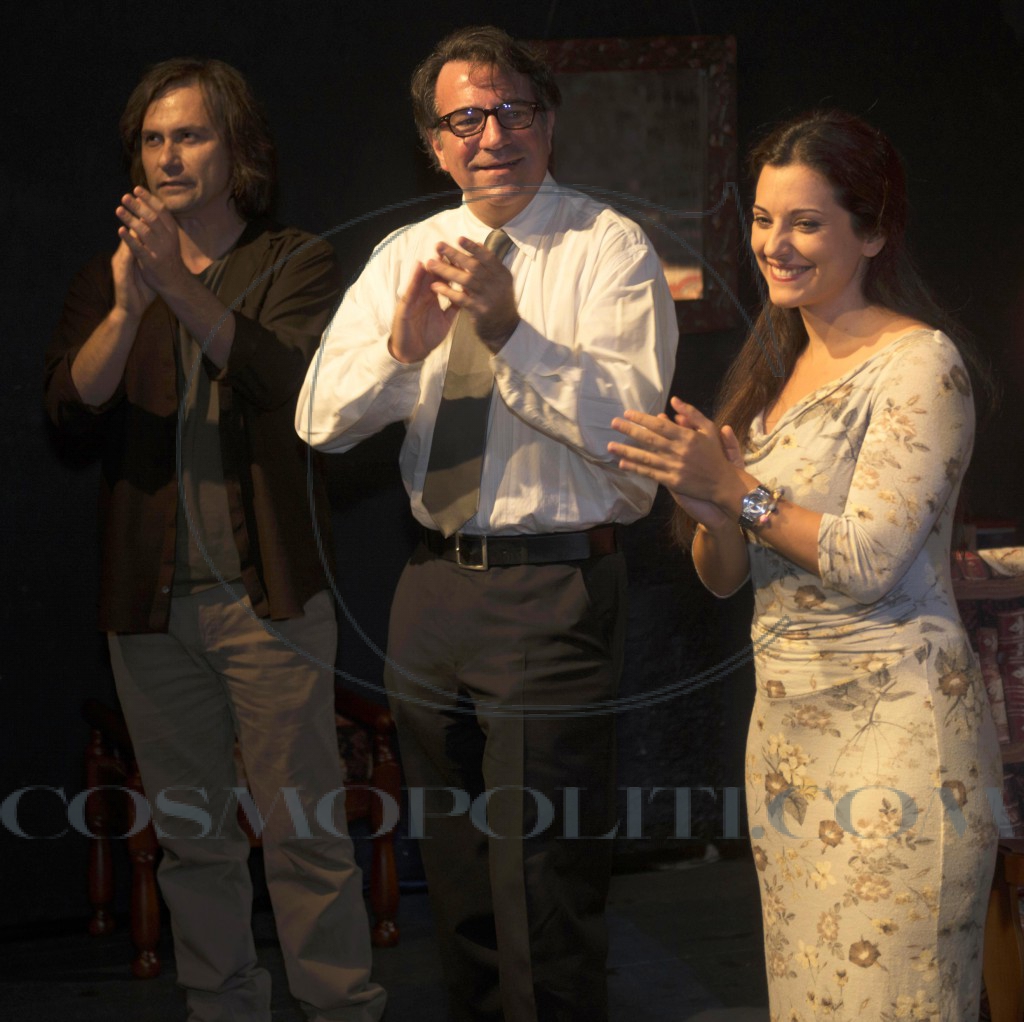
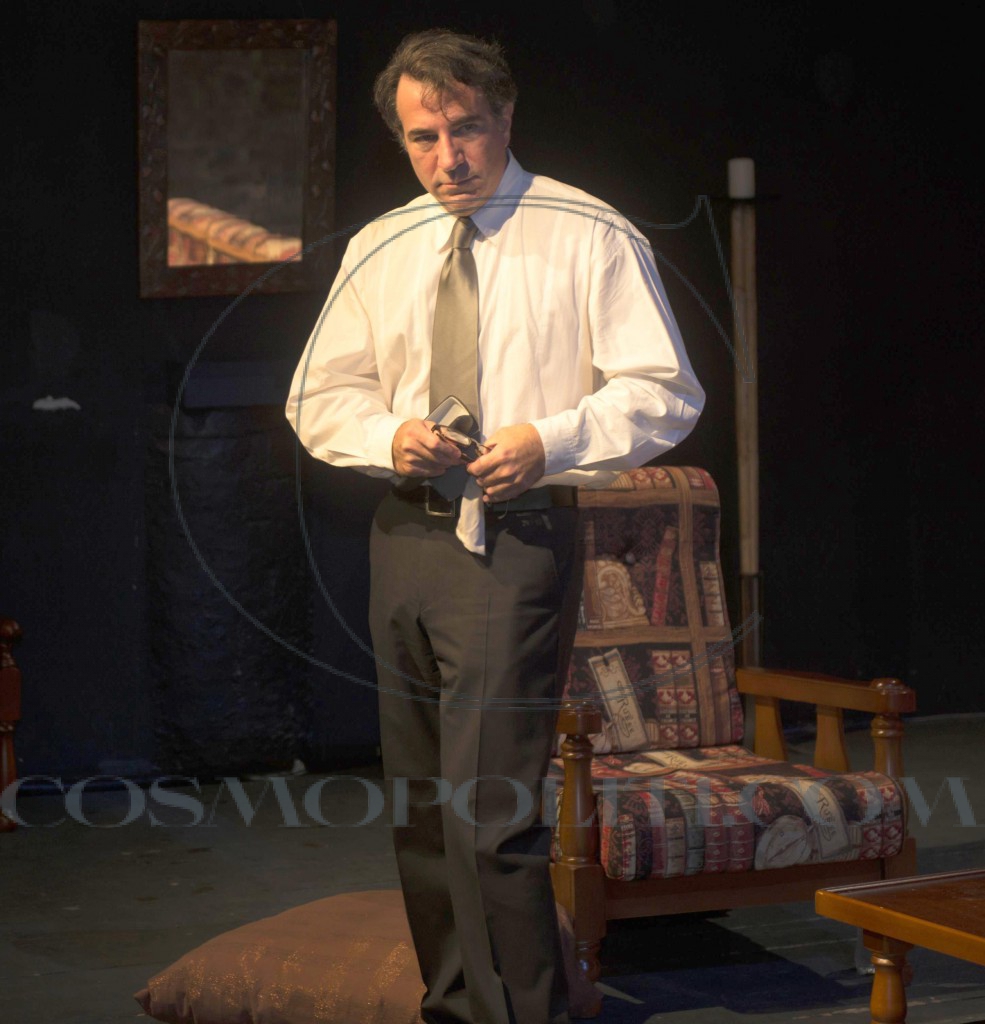
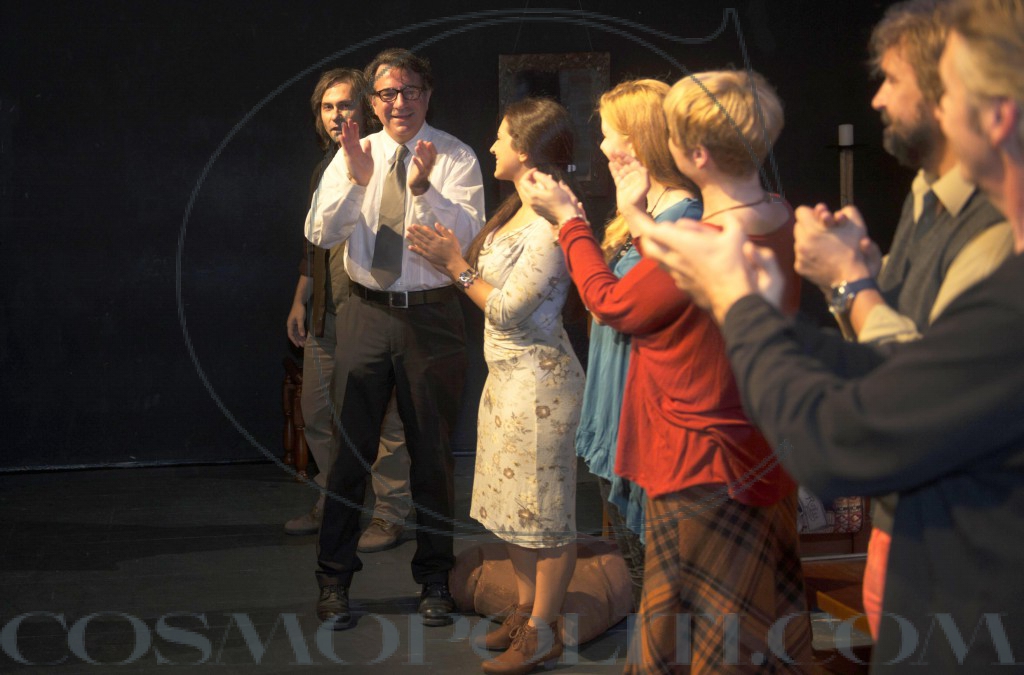
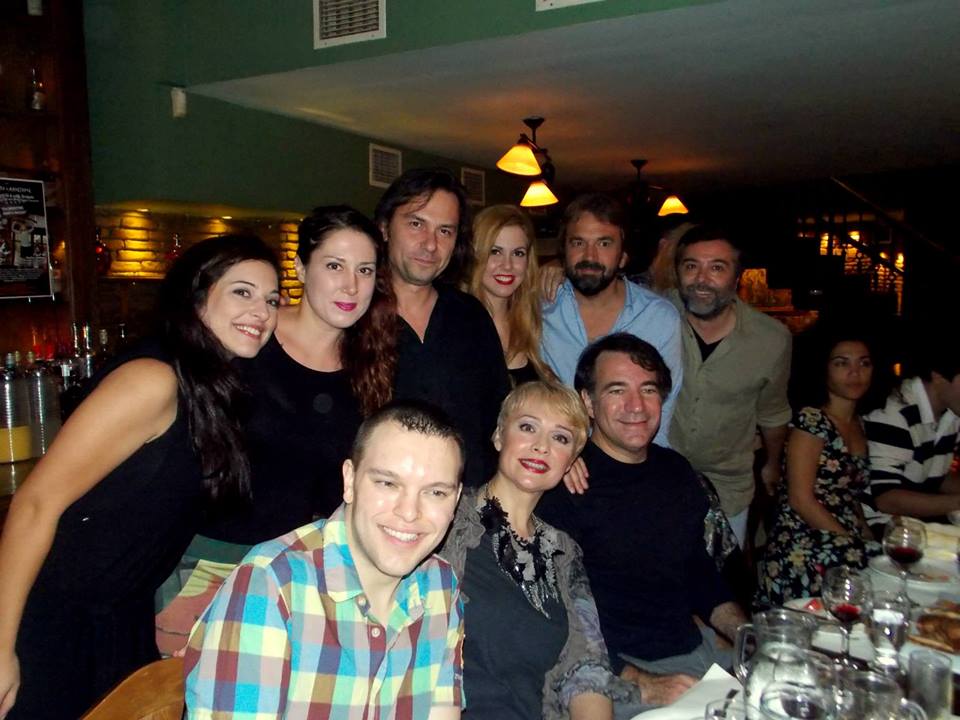
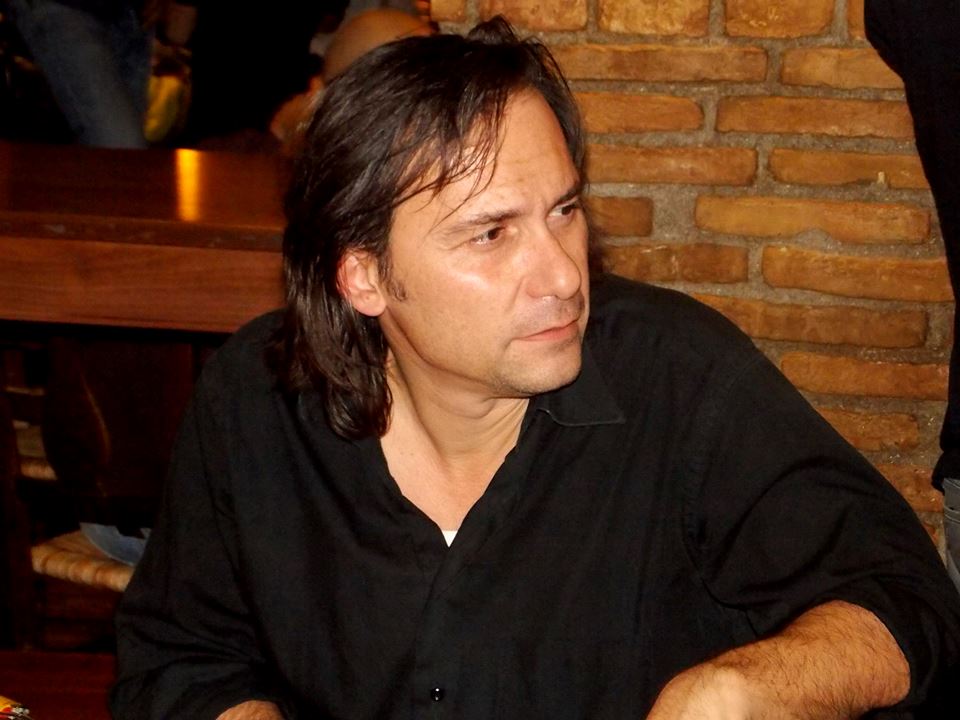
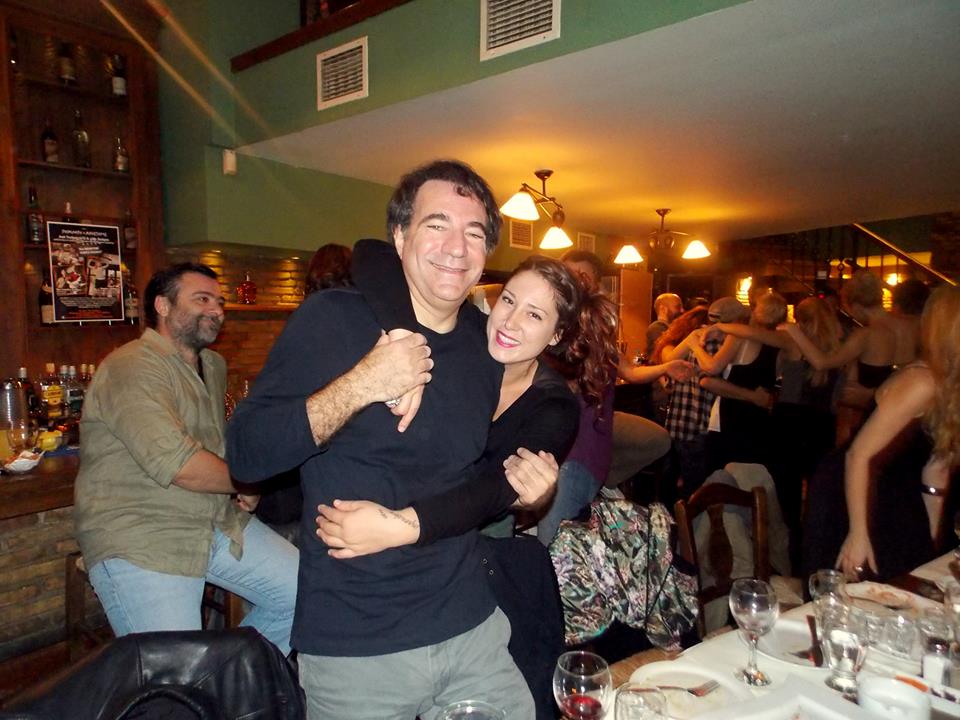
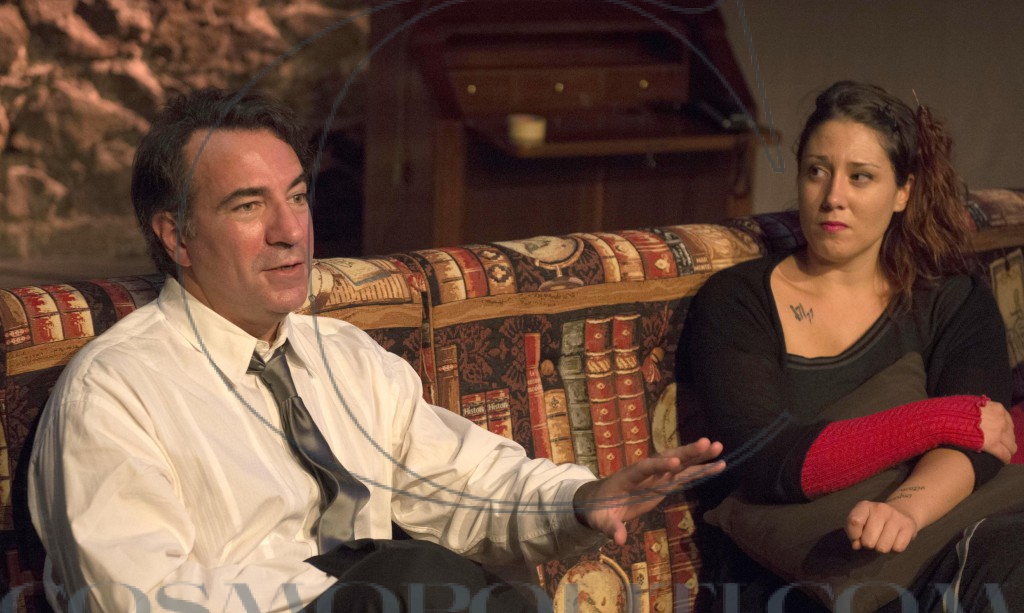

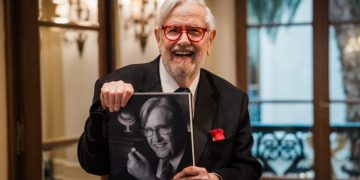











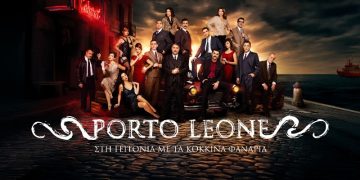

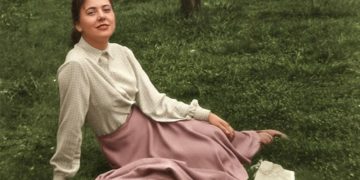
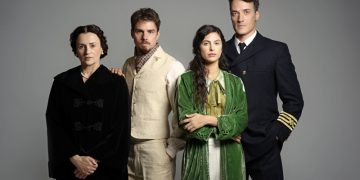
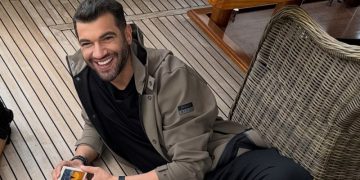
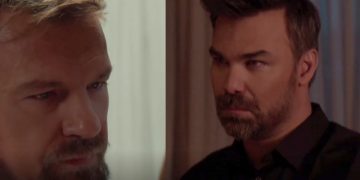
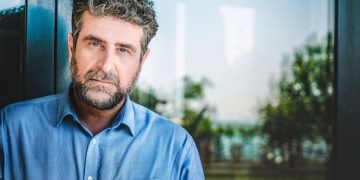



















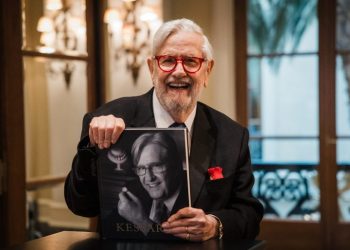

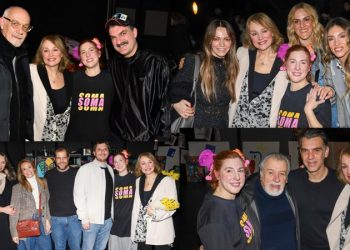

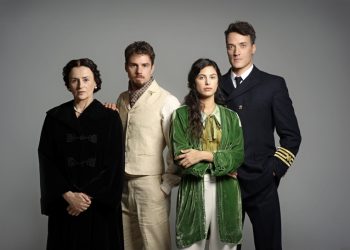
Σχόλια για αυτό το άρθρο